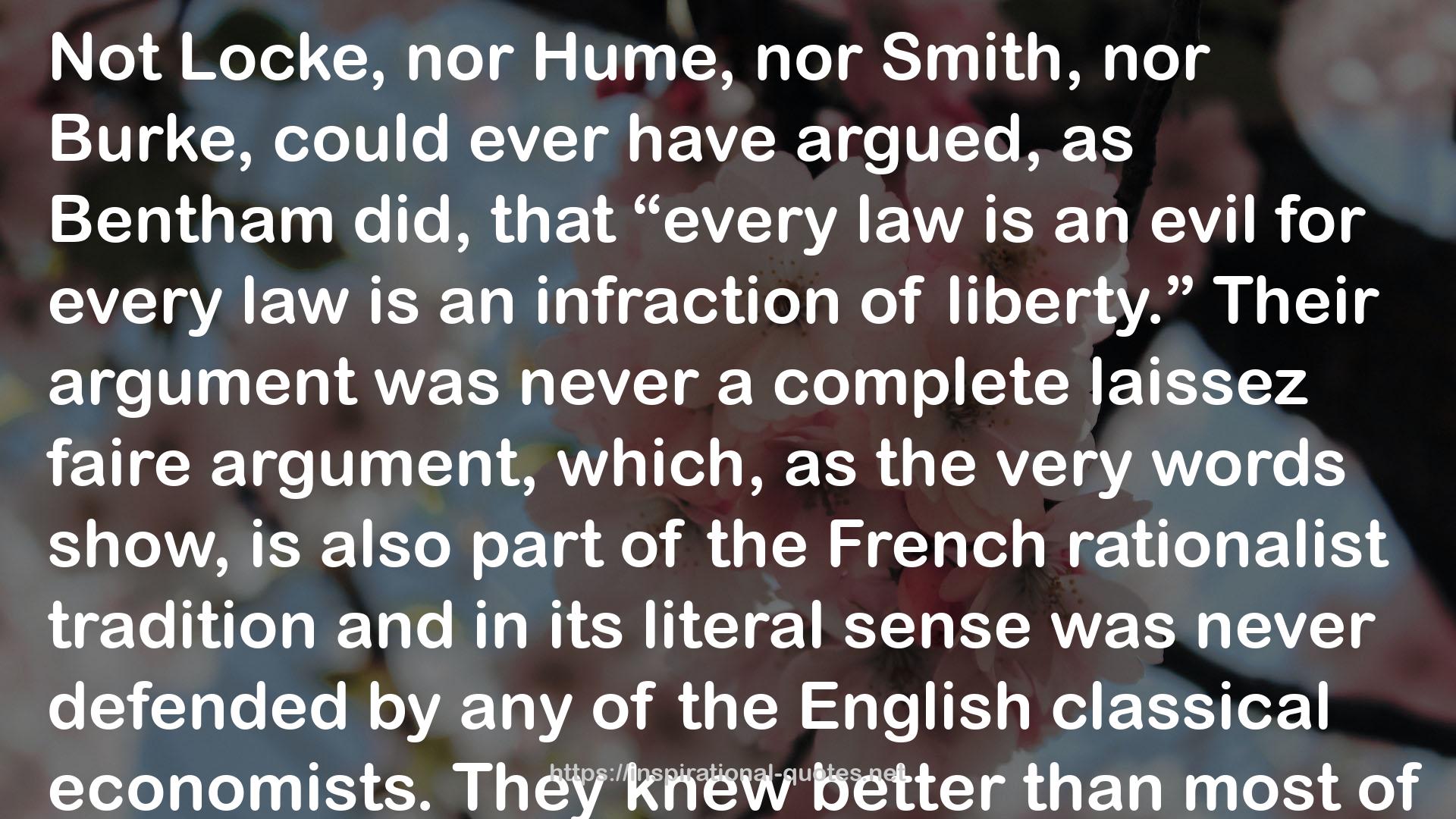" Not Locke, nor Hume, nor Smith, nor Burke, could ever have argued, as Bentham did, that “every law is an evil for every law is an infraction of liberty.” Their argument was never a complete laissez faire argument, which, as the very words show, is also part of the French rationalist tradition and in its literal sense was never defended by any of the English classical economists. They knew better than most of their later critics that it was not some sort of magic but the evolution of “well-constructed institutions,” where the “rules and principles of contending interests and compromised advantages” would be reconciled, that had successfully channeled individual efforts to socially beneficial aims. In fact, their argument was never antistate as such, or anarchistic, which is the logical outcome of the laissez faire doctrine; it was an argument that accounted both for the proper functions of the state and for the limits of state action. "
― Friedrich A. Hayek , The Constitution of Liberty
